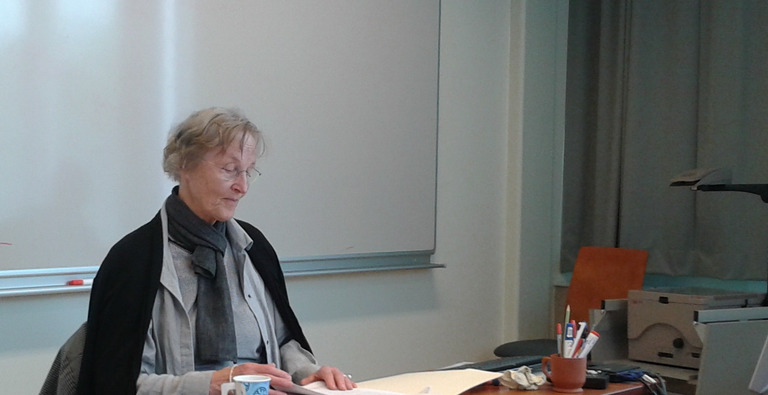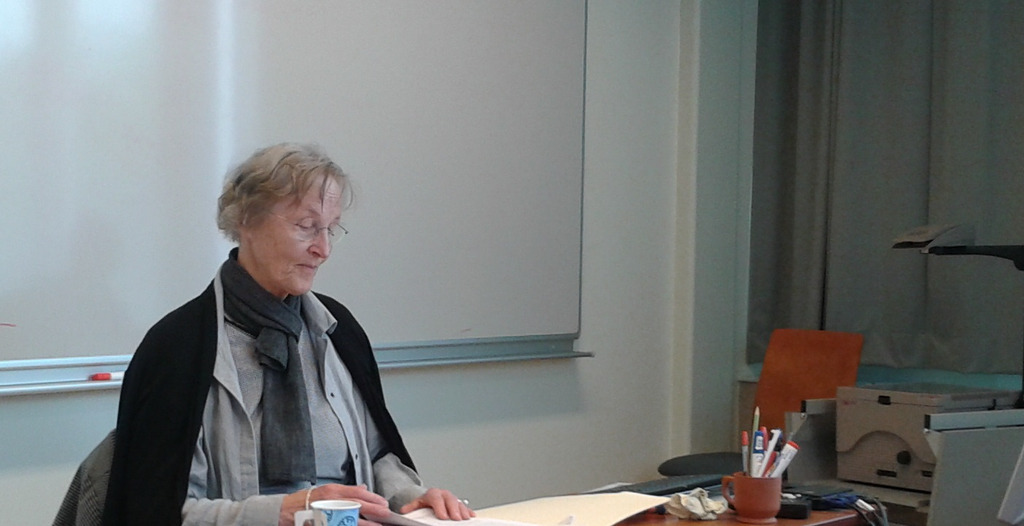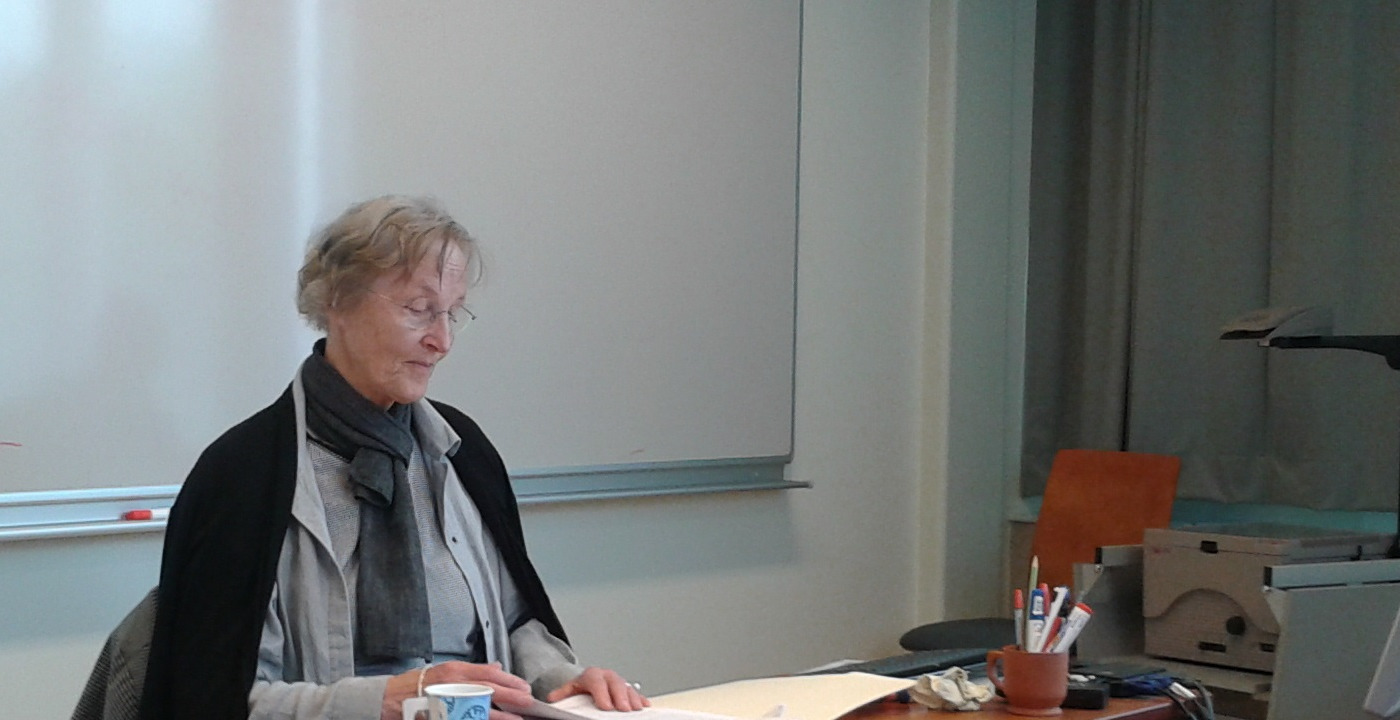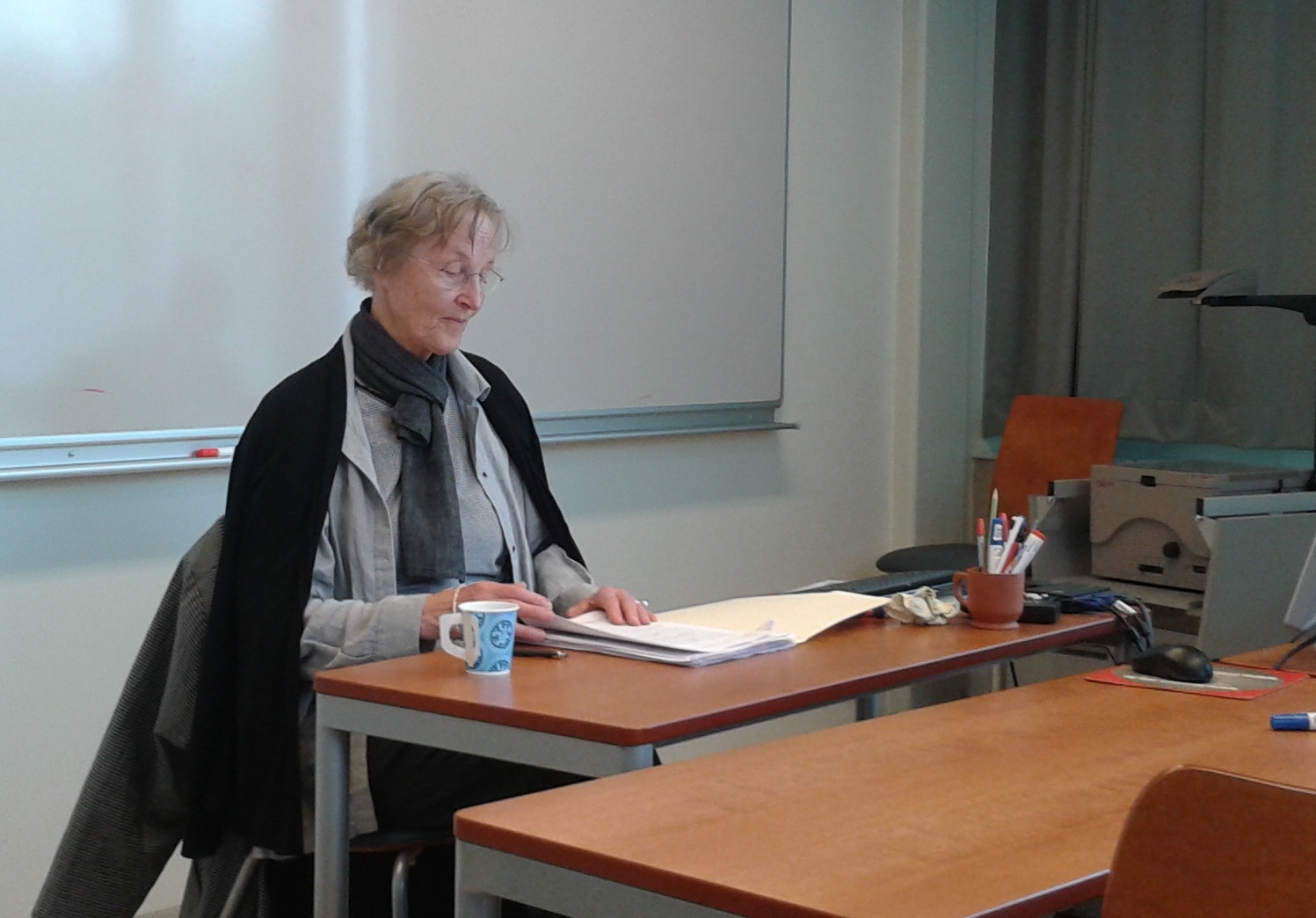Birth
October 16th, 1941 in Pori, FinlandEducation
Lilli Alanen studied philosophy, anthropology and sociology at the University of Helsinki and the Sorbonne. She received her doctorate in philosophy from the University of Helsinki in 1982.
Death
October 22nd, 2021 in Helsinki, FinlandLilli Alanen was a Finnish philosopher and professor. Her work examines moral psychology and epistemology in the early modern period, focusing on concepts of mind in thinkers such as David Hume, René Descartes and Baruch Spinoza. She was the first woman to gain a professorship in philosophy in Sweden.
Personal Information
Name(s)
Lilli Kristina Alanen (née Gullichsen)
Date and place of birth
b. 16 October 1941, Pori, Finland
Date and place of death
d. 22 October 2021, Helsinki, Finland
Family
Mother: Maire Eva Johanna Gullichsen b. 24 June 1907 d. 9 July 1990
Father: Harry Gullichsen b. 31 October 1902, Kotka, Finland; d. 4 September 1954, Helsinki, Finland
Marriage and Family Life
Siblings: Kristian Valter Alexander Gullichsen b. 29 September 1932, Helsinki, Finland, d. 17 March 2021, Helsinki, Finland; Johan Erik Gullichsen b. 28 June 1936, Pori, Finland.
Lilli’s mother, Maire Gullichsen, co-founded the furniture company Artek in December 1935 with the architect Alvar Aalto, his wife Aaino Aalto, and the art historian Nils-Gustav Hahl. When Lilli was a child, the Gullichsen family lived in a (now-famous) house in Noormarkku designed by Alvar Aalto. The house, Villa Mairea, was constructed in 1938-9. Maire Gullichsen established the Mairea Foundation in 1980, through which the house is preserved for visitors.
Lilli Alanen had three children with Sakari Alanen: Maija, Anna and Harry. Her son is the philosopher Harry Alanen. Lilli and Sakari Alanen were married from 1964 to 1989. In 1992, Lilli Alanen married the philosopher Frederick Stoutland (b. 1933 d. 2011).
Education
Lilli Alanen passed the Finnish matriculation examination and completed high school in 1959. That year, she moved from Finland to France to pursue her studies in Paris. She intended to study art history, but switched instead to psychology. She took a general exam in the humanities from 1961-2, and was exposed to philosophy through a course on G.W.F. Hegel’s 1817 Encyclopedia. She left Paris in 1963 with a “Certificat en Psychologie générale” from the Sorbonne. Alanen began studying philosophy, anthropology and sociology at the University of Helsinki in the fall of 1963. She received her degree in philosophy in 1971, with a thesis on Peter Winch and the philosophy of the social sciences.
In 1972, Alanen again went to Paris and studied at the Sorbonne under Ferdinand Alquié (1906–1985). During that time, she became interested in early modern philosophy, and was influenced by Alquié’s 1950 book La Découverte métaphysique de l'homme chez Descartes. Back in Helsinki, Alanen studied Wittgenstein with the professor Erik Stenius. She took a special liking to Wittgenstein’s Tractatus. Stenius supervised Alanen’s licentiate thesis, written on the Swedish theologian and philosopher Andreas Rydelius (1671-1738) and completed in 1976.
Alanen pursued doctoral studies in philosophy at the University of Helsinki under the supervision of Ingmar Pörn (1935-2014). She received her doctorate in 1982. Her dissertation was published that same year as Studies in Cartesian Epistemology and Philosophy of Mind. She worked as a researcher in philosophy for the Academy of Finland, both in Finland and in the United States, until 1996. Alanen was awarded the role of professor at the University of Uppsala in Sweden in 1997.
On one visit to the United States, Alanen requested to stay at the University of Virginia as a guest of Richard Rorty. However, Rorty encouraged her that Virginia was too quiet, and that the University of Pittsburgh would make a livelier home for her research.
Alanen compared her training in analytic philosophy to that of the medieval scholastics. Both analytic and scholastic philosophers, she contended with disapproval, aimed to solve puzzles and problems by consistently applying received methods, rather than questioning the assumptions underlying those methods. For Alanen, much like Descartes, intellectual honesty demands that the starting point and method of philosophy be justified.
Transformation(s)
In the introduction to her seminal 2003 book on Descartes, Lilli Alanen thanks a friend, New Zealand philosopher Annette Baier (1929-2012), for imparting to her an important lesson about forging one’s own path in philosophy. “Above all I am grateful to Annette Baier, who showed that when doing philosophy as a woman, one need not feel bad in following one’s own lights and interests were they to depart from those of one’s male tutors and predecessors” (Descartes’s Concept of Mind xiii). Alanen and Baier worked together from 1990-1 when the former was a visiting researcher—and the latter a professor of nearly twenty years—at the University of Pittsburgh.
Contemporaneous Network(s)
Lilli Alanen was a member of the American Philosophical Association, the European Academy of Sciences, the Hume Society, the Institut Internationale de Philosophie (the International Institute of Philosophy), the Norwegian Academy of Sciences, the Royal Society for the Humanities, and the Societas Scientiarum Fennica (the Finnish Society of Sciences). In 2018, Alanen was made an International Honorary Member of the American Academy of Arts and Sciences.
less
Significance
Works/Agency
Lilli Alanen’s work examines moral psychology and epistemology in the early modern period, focusing on concepts of mind in thinkers such as David Hume, René Descartes and Baruch Spinoza.
In her 2003 book Descartes’s Concept of Mind, Alanen explodes Gilbert Ryle’s myth of the Cartesian myth. Ryle defines a myth as “the presentation of facts belonging to one category in the idioms appropriate to another” (The Concept of Mind x). Alanen re-allocates the facts of Descartes’ concept of mind to its seventeenth-century context, showing Ryle’s category mistake in using 20th century idioms, especially his famed distinction between knowing how and knowing that, to scrutinize Descartes’ views. More importantly, Alanen demonstrates that Ryle’s reading of Descartes is not a presentation of textual facts at all.
Alanen co-edited two volumes of essays: one on philosophy of action (with Sara Heinämaa and Thomas Wallgren, Commonality and Particularity in Ethics, 1997), and a second on feminist histories of philosophy (with Charlotte Witt, Feminist Reflections on the History of Philosophy, 2004).
Reputation
Lilli Alanen was the first woman to gain a professorship in philosophy in Sweden. She had a strong international reputation for scholarship. She held a professorship at the University of Uppsala from 1997 until her retirement in 2008.
Legacy and Influence
“Mind, Nature, and Morality,” a conference in honor of Lilli Alanen, was held at the University of Helsinki from September 2-4, 2016. Select contributions to the conference were included in Mind, Body, and Morality: New Perspectives on Descartes and Spinoza, edited by Martina Reuter and Frans Svensson. The volume includes an article by Alanen titled “Self and Will in Descartes’s Account of Love.”
less
Bibliography
Primary (selected):
Alanen, Lilli (1990) “Cartesian Ideas and Intentionality” In Language, Knowledge and Intentionality: Perspectives on the Philosophy of Jaakko Hintikka, edited by Leila Haaparanta, Martin Kush and Ilkka Niiniluoto. Helsinki: Acta Philosophica Fennica, vol. 49.
-(2003) Descartes’s Concept of Mind Cambridge: Harvard University Press.
-(1989) “Descartes’s Dualism and the Philosophy of Mind” Revue de Métaphysique et de Morale 3: 391-413.
-(2002) “Descartes on the Will and the Power to do Otherwise” Emotions and Choice from Boethius to Descartes Studies in the History of Philosophy of Mind, Vol 1., Eds. Lagerlund H., Yrjönsuuri M., Dordrecht: Springer.
-(2014) “Personal Identity, Passions, and ‘The True Idea of the Human Mind’” Hume Studies Vol. 40, Issue 1, 3-28.
-(1996) “Reconsidering Descartes’s Notion of the Mind-Body Union” Synthese 106, 3–20.
-(2019) “Self and Will in Descartes’s Account of Love” Mind, Body, and Morality: New Perspectives on Descartes and Spinoza Eds. Martina Reuter and Frans Svensson, London: Routledge.
-(2011) “Spinoza on the Human Mind” Midwest Studies in Philosophy 35: 4-25.
-(1982) Studies in Cartesian Epistemology and Philosophy of Mind Helsinki: Akateeminen Kirjakauppa.
-(2017) “The Metaphysics of Affects or the Unbearable Reality of Confusion” The Oxford Handbook of Spinoza Ed. Michael Della Rocca, Oxford: Oxford University Press.
-(1992) “Thought-Talk: Descartes and Sellars on Intentionality” American Philosophical Quarterly Vol. 29, No. 1, 19-34.
Web Resources (selected):
Ekenberg, Tomas, Lars-Göran Johansson, Peter Myrdal, Pauliina Remes, Frans Svensson (2021) “In Memoriam — Lilli Alanen” Uppsala Universitet https://www.filosofi.uu.se/news/?tarContentId=976900 Web, Accessed 24.3.22.
Tuusvuori, Jarkko S. (2014) “Professori Lilli Alasen vieraana” Niin & Näin https://netn.fi/sites/www.netn.fi/files/netn141-03.pdf Web, Accessed 24.3.22.
(2022) “Professor Lilli Alanen” American Academy of Arts & Sciences Member Directory https://www.amacad.org/person/lilli-alanen Web, Accessed 24.3.22.
Villa Mairea Official Website https://villamairea.fi/en/ Web, Accessed 24.3.22.




Comment
Your message was sent successfully